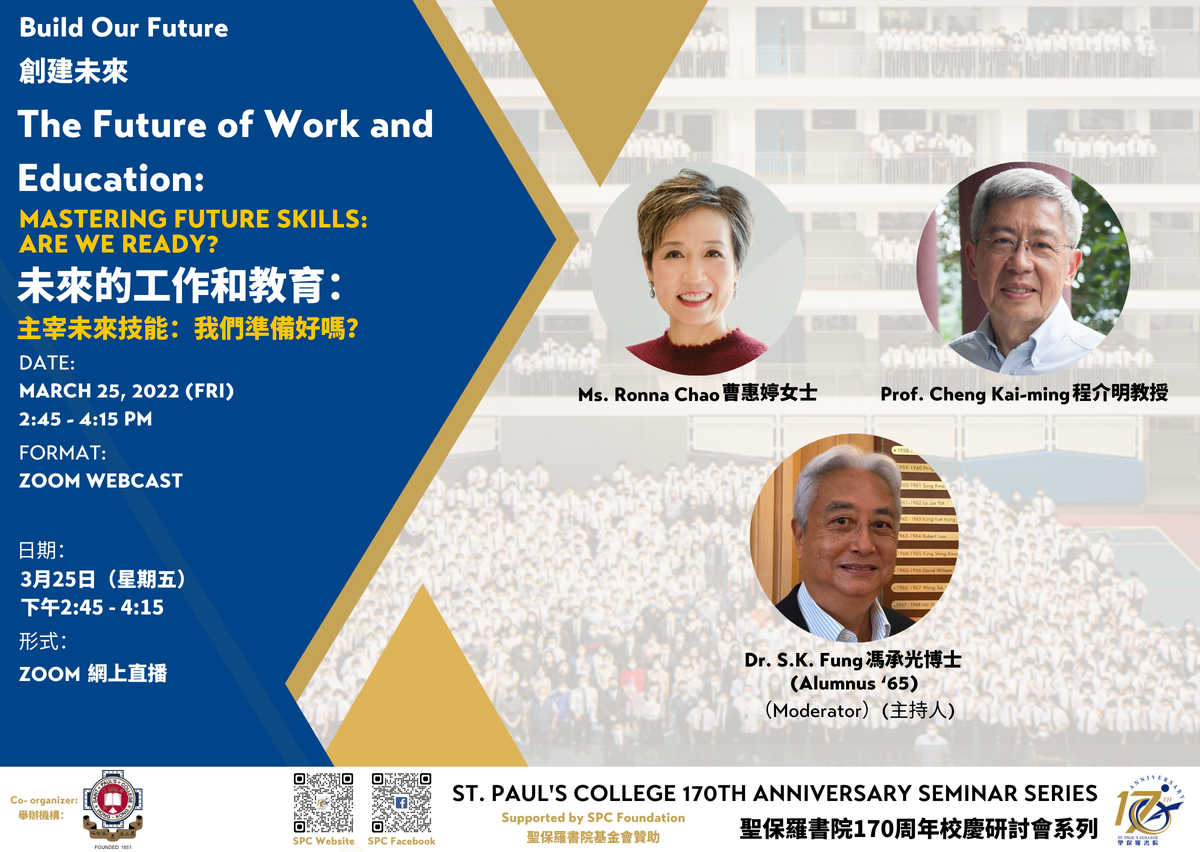Event Details
The world is rapidly changing, and so is the landscape of work and employment. According to the World Economic Forum (WEF), 50% of today's jobs could be automated by AI and machines by 2055. The pandemic also accelerated the growth of remote work, gig economy, entrepreneurship, e-commerce and automation. Both technology and the pandemic have transformed the skills required in an increasingly competitive and inter-disciplinary study and work environment. Based on WEF research, 50% of all employees will need reskilling by 2025 to adapt to the latest technological advancements. It also indicates the top skills required by 2025 include analytical thinking and innovation, active learning and complex problem solving. As reskilling and life-long learning become essential, our mindsets and attitudes need to be more flexible and adaptable, so as to collaborate with diverse people. Entrepreneurial spirit, resilience and learning from failures are indispensable attributes in problem solving. To equip students with future skills, we need to bridge the gap between what students are learning and the practical skills required by employers. How can students better prepare themselves to meet the expectations in the workplace? What should students keep in mind when selectingtheir course of study at university and preparing for the future? Furthermore, how can parents guide and inspire their children? This seminar will explore the tools necessary to be future-ready, and the paths towards finding one's passions and interests.
Mar 25, 2022
14:45 - 16:15 GMT+8
Speakers

Ms. Ronna Chao 曹惠婷女士
Asia Society Hong Kong Board Member & CEO of Bai Xian Asia Institute (BXAI) 亞洲協會香港中心董事會成員及百賢亞洲研究院行政總裁
Read Bio
Prof. Cheng Kai-ming 程介明教授
Emeritus Professor of Academic Unit of Social Contexts and Policies of Education at The University of Hong Kong 香港大學政策、行政及社會科學教育部榮休教授
Read Bio
Dr. Fung Shing Kwong 馮承光博士
Former MD of AcNielsen Asia, President of NBC Asia, GM of Television Broadcasts (TVB) 前AC尼爾森亞洲區董事總經理、NBC Asia 前總裁、 無線電視總經理
Read Bio
Community
Connect with 20 people attending this event

 JSLSAWSWBL
JSLSAWSWBL


